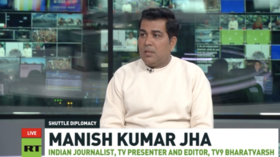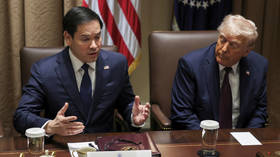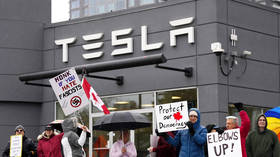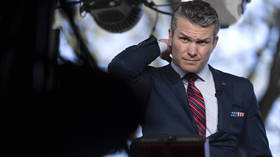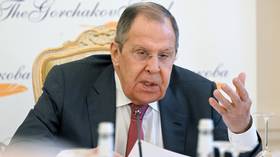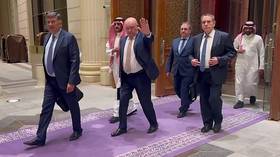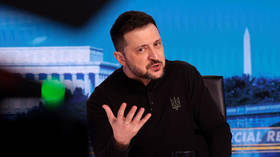UK reaches agreement with EU to end bitter row over post-Brexit diplomatic status
The British government has agreed to grant full diplomatic status to the EU’s ambassador to the UK, João Vale de Almeida, and his 25-strong mission, ending London and Brussels’ acrimonious dispute over post-Brexit arrangements.
Josep Borrell, the EU’s foreign policy chief, and UK Foreign Secretary Dominic Raab announced the move in a joint statement, following a meeting between the pair in London on Wednesday.
“The EU Ambassador will have a status consistent with heads of missions of states, including agrément [diplomatic approval] and presentation of the credentials to the Head of State,” they said.
“EU Delegation staff will have the privileges and immunities needed to function effectively, while allowing for effective administration of justice.”
Earlier this year, the UK reiterated its refusal to grant the same diplomatic status to the EU delegation as it does to the missions of other countries, arguing that the trading bloc is not a nation state.
Also on rt.com UK risks sparking diplomatic row after refusing to grant EU officials full diplomatic statusThat move, announced after Brexit took effect on January 1, drew the ire of EU officials, including Borrell who said it was “not a friendly signal.”
He argued that every other EU delegation around the world had been accepted by its host countries as ‘missions of states’ in line with the Vienna Convention on diplomatic relations.
The UK Foreign Office said in a statement at the time that “the EU, its Delegation and staff will receive the privileges and immunities necessary to enable them to carry out their work in the UK effectively.”
Also on rt.com EU fury at UK’s diplomatic snub shows it for what it is, a petty old boys network focused more on status than tackling big issuesThe British ambassador to the EU, Lindsay Croisdale-Appleby, has retained his full diplomatic status, although he was kicked out of official channels of communication in a retaliatory move by Brussels, according to the Times.
In their statement on Wednesday, Borrell and Raab said they had also discussed foreign and security policy, and climate change.
Their meeting was on the sidelines of the G7 summit attended by the foreign ministers of Canada, France, Germany, Italy, Japan, the UK and the US.
Like this story? Share it with a friend!




